| The Ready to Read Act is a preventative measure to help students with reading difficulties get the support they need before they fall behind. The Ready to Read Act of 2019, Students with Reading Difficulties, and The Code of Maryland Regulation, 13A.03.08, Students at Risk for Reading Difficulties, requires the following:
The Maryland State Department of Education collaborated with the Ready to Read Stakeholder group and Decoding Dyslexia Maryland to provide an implementation guide for Local Education Agencies (LEAs) to use for guidance on the implementation of the Ready to Read Act and COMAR 13A.03.08. This guide will be updated every 4 years as required by law. Download the Students at Risk for Reading Difficulties - Implementation Guide | School District Reading Screening Data Download the Annual LEA Data Report Summary 2020-2021 Download the Annual LEA Data Report Summary 2021-2022 LEA Reporting Requirements The Ready to Read Act of 2019 and COMAR 13A.03.08 requires LEAs to report annual data to the Maryland State Department of Education. This report includes information on each LEA’s:
For More Information Original and Final Bill Language Code of Maryland Regulations, Final Language (this is what schools use to implement the law) Ready to Read Implementation Guide Download the FAQ document Ready to Read Act Summary |
|
0 Comments
The Early Literacy and Dyslexia Practices - Guidance and Assistance Bills, HB 237 & SB 126 failed to receive a vote in the Education, Health, and Environmental Affairs Committee (EHEA) during the 2021 session even though it unanimously passed the House of Delegates in February. The legislation aimed to assure that school district personnel and parents could access best practices, resources and guidance to address reading and dyslexia. The bill content and history is summarized in prior blog posts. If you are interested in developing legislative policy for Decoding Dyslexia Maryland in the 2022 session, please reach out to [email protected]. Thank you parents, legislators and supporters -- you are appreciated!ACTION ALERT, READING & DYSLEXIA HANDBOOK
Action StepsEmail, Call or Meet with your Senator
Reading & Dyslexia Handbook Bill reintroduced by Delegate Eric Ebersole and Senator Katie Fry-HesterOn January 31, 2020, Delegate Eric Luedtke and Senator Katie Fry Hester introduced HB 718 and SB 575, the Reading and Dyslexia Handbook bills. The bill passed unanimously in the House Ways & Means Committee, but due to the pandemic and the shortened legislative session the bill did not advance to the Senate. The Reading & Dyslexia Handbook legislation was reintroduced for the 2021 legislative session by Delegate Eric Ebersole under HB0237 and it is scheduled to be discussed in front of the House Ways & Means Committee on January 20th at 1:00 PM. The companion bill was sponsored by Senator Katie Fry-Hester and cross-filed under SB126; it is scheduled to be heard by the Senate Environmental, Health and Education (EHE) Committee on January 27th at 11:00 AM. We are asking parents, educators, administrators and community partners to write their representatives in the Maryland General Assembly in support of this legislation. The DDMD Advocacy Tool-Kit provides a Step-by-Step guide to navigating the legislative process and how to engage with representatives. If you are interested in submitting written / oral testimony and/or meeting with our Senators on the EHE Committee, please fill out our Interest Form so the DDMD Legislative Committee can coordinate with you. Maryland’s 2017 Legislative Dyslexia Task Force Report includes a recommendation to create a Dyslexia Handbook as a result of the findings from the Dyslexia Task Force. The Task Force found that administrators, educators, and parents would benefit from a resource on dyslexia that is electronically accessible to all (p. 52). The Recommendation says: “This Handbook should reflect the neurobiological and operational definition of dyslexia provided in the dyslexia Technical Assistance Bulletin and mirrored in this document, and should include evidence-based practice guidelines for identification, assessment, and intervention, service delivery model(s), and progress monitoring strategies and tools. This is a legislative opportunity to establish and fund a Working Group or Dyslexia Advisory Committee to develop the handbook using the Best Practices document presented by the Task Force.” The Maryland Ready to Read Act (2019, SB 734, Ch. 512), originally included language to create a Dyslexia Handbook. The final bill did not include the handbook language in order to shorten and tighten the bill. The recommendation to create a Dyslexia Handbook is an inexpensive means to provide supplemental information to Maryland’s 24 local control districts so they have access to the best practices to identify and address dyslexia in Maryland.
“This Handbook should reflect the neurobiological and operational definition of dyslexia provided in the dyslexia Technical Assistance Bulletin and mirrored in this document, and should include evidence-based practice guidelines for identification, assessment, and intervention, service delivery model(s), and progress monitoring strategies and tools. This is a legislative opportunity to establish and fund a Working Group or Dyslexia Advisory Committee to develop the handbook using the Best Practices document presented by the Task Force.”
National Organizations Begin to "Say Dyslexia"In collaboration with 10 partners, Decoding Dyslexia announces the release of eight principles that lay the groundwork for future best practice documents that focus specifically on best practices to address Specific Learning Disabilities (SLD dyslexia, dysgraphia and dyscalculia). The Principles are formally called: Eligibility for Special Education Under a Specific Learning Disability Classification.
The principles cover topics such as instruction and intervention, collaboration among team members, parent and family engagement, the use of screening, response to intervention, data based decision making and other important factors involved in pre-referral prevention and referral/evaluation and eligibility decisions for special education services for SLDs like dyslexia. Click here to read “Eligibility for Special Education Under a Specific Learning Disability Classification.” It is important to note that this is a consensus document. The Principles are not 100% aligned to DDMD's views on "saying dyslexia", the specific value of cognitive evaluations, and robust parent engagement. Continued participation in the SLD Working Group will allow dyslexia advocates the opportunity to further develop Best Practice documents as well as work alongside national groups who, until recently, did not "say dyslexia". Working group members hope to continue to build relationships and understanding around the needs of the dyslexia community. The next steps include development and release of several Best Practice documents. In the coming months, the Working Group organizations will recommend best practices for SLD eligibility, cognitive evaluations, response to intervention/MTSS (done well and including dyslexia), parent engagement & a dyslexia guidance following the federal Dept. of Education OSERS 2016 Guidance. More information: www.ncld.org/SLDeligibility. General advocacy information for learning disability can be found here: https://www.ncld.org/action-center The Maryland General Assembly recently approved a reading screening and early intervention bill that would screen all Kindergarten students for risks of reading difficulty. The bill will take effect in school year 2020-2021. Learn More about SB 734.
SB 734, The Maryland Ready to Read Act, was unanimously approved by the Maryland legislature and awaits signature by Governor Larry Hogan. Please thank Senate sponsor Craig Zucker (D-Montgomery) and House sponsor Eric Luedtke (D-Montgomery) who championed the Ready to Read Screening and Interventions bill to victory this session!
About the bill: Beginning in the 2020-2021 school year, SB 734 will enable Maryland’s twenty-four school districts to provide reading screening to ALL Kindergarten students to determine if they are at risk for reading difficulties. If screening data indicates that a student may be at risk, a prevention framework is set in motion and students at risk for reading difficulties will receive supplemental reading instruction in their areas of need. SB 734 also requires parent engagement, reporting, and funding through the Blueprint for Maryland’s Future (SB 1030).
On Wednesday, March 27, 2019, SB 734 moved closer to becoming law when it received an unanimous vote on the House floor. The Senate is expected to concur with the three technical amendments added by House Ways & Means Committee, and no further changes to the legislation are expected. Once the Senate concurs, the bill is expected to be signed by the Governor.
The Ready to Read bill requires screening & interventions for students at risk for reading difficulties and was heard by the House Ways & Means Committee on Thursday, March 21. Senator Craig Zucker testified in support of the bill in a "sponsor only" hearing. Later in the afternoon, the House Ways & Means Education Subcommittee, Chaired by Del. Eric Luedtke, brought the bill up for discussion -- three technical amendments were added to the bill and the subcommittee passed the bill unanimously where it then received unanimous support from the full Ways & Means committee. For amended language, please visit the General Assembly website and see the DDMD State Legislative summary. Ready to Read, SB 734, Receives Favorable Report from House Ways & Means, Moves to House Floor3/23/2019
Amended Bill Language Summary Amended Version of Ready To Read, SB 734 (A): DEFINITIONS
(A)(7): WHO IS SCREENED: Student is amended and defined as:
(B)(3): PARENT NOTIFICATION
(H) TECHNICAL SUPPORT: The Department shall provide: technical support for the county boards to provide:
|
|||||||||||||||||||||||
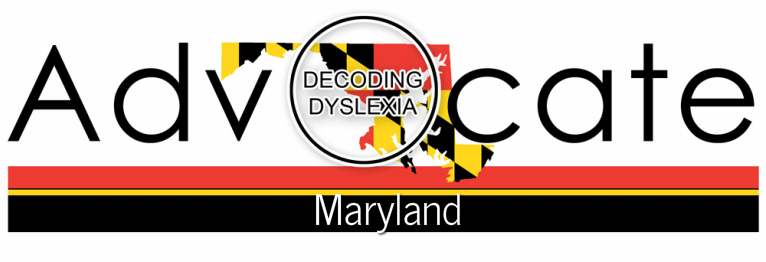
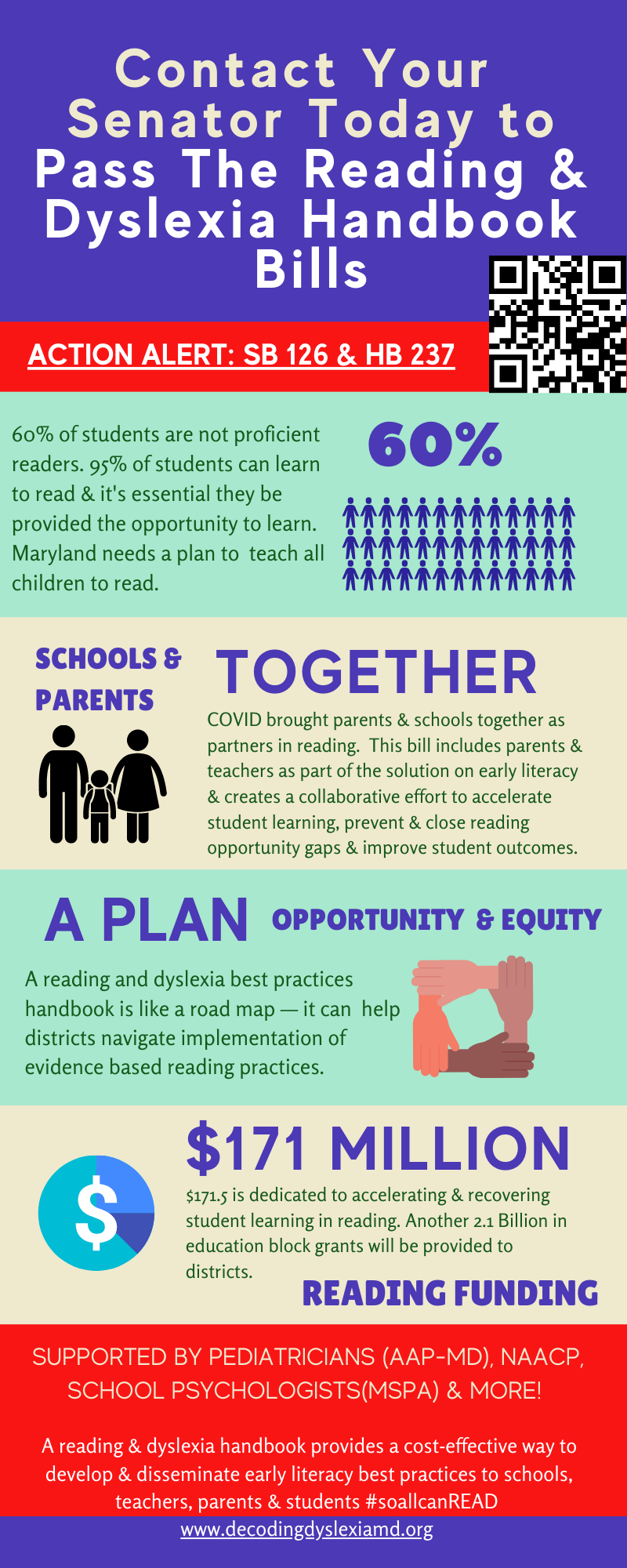
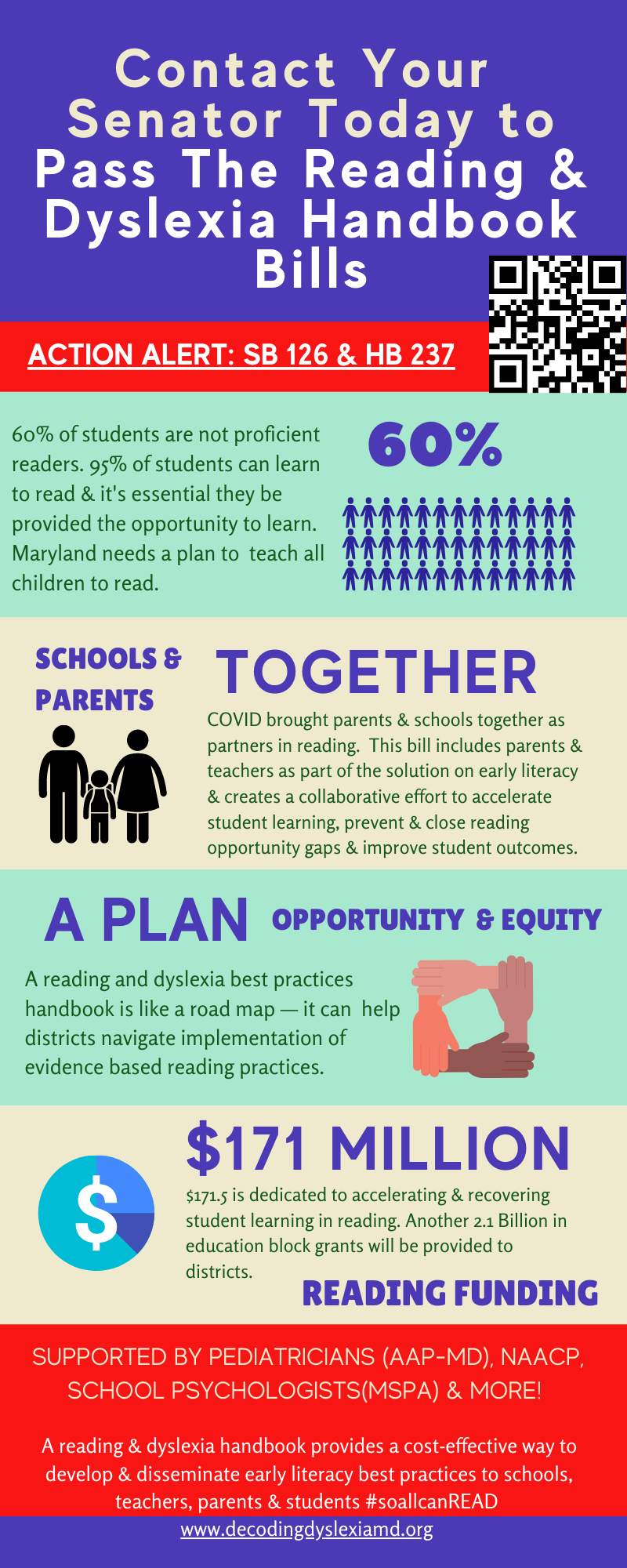
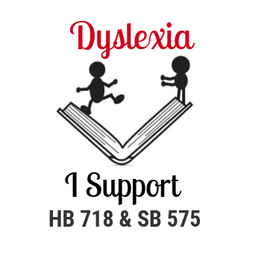

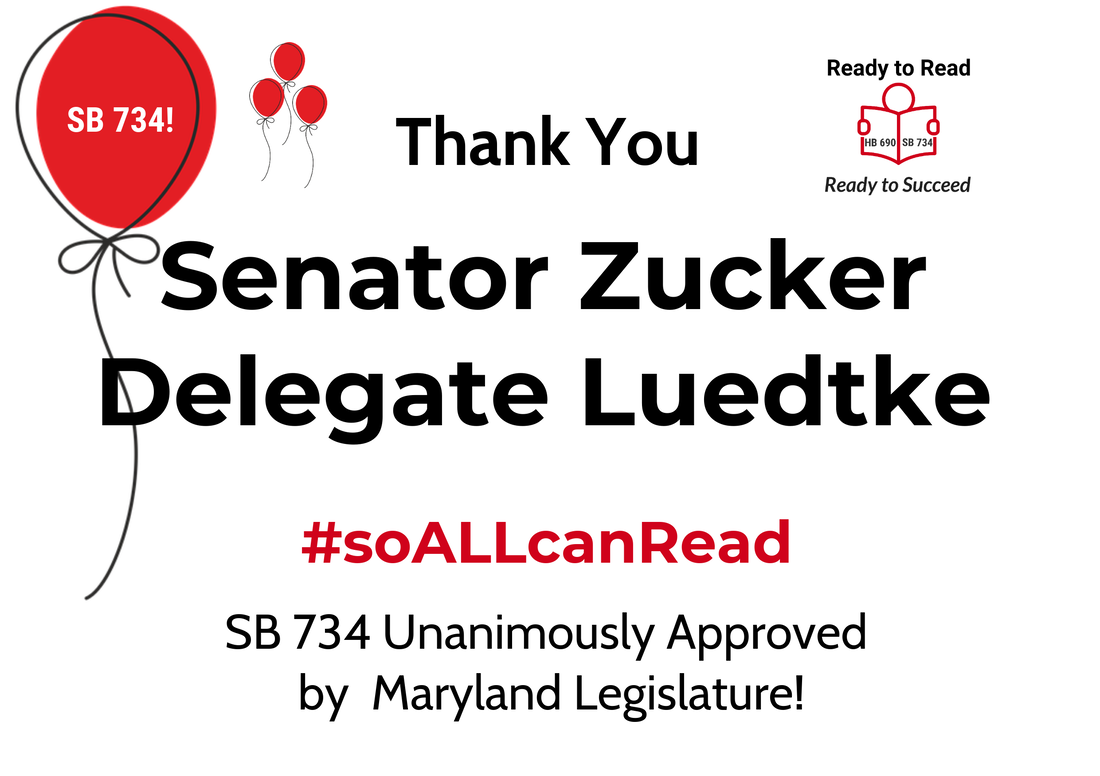


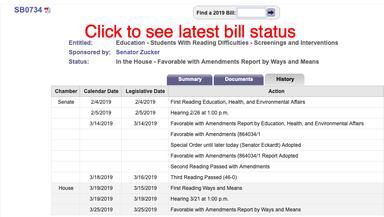
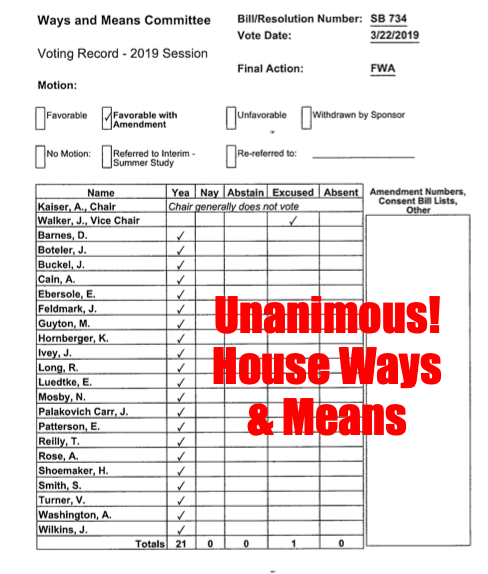
 RSS Feed
RSS Feed